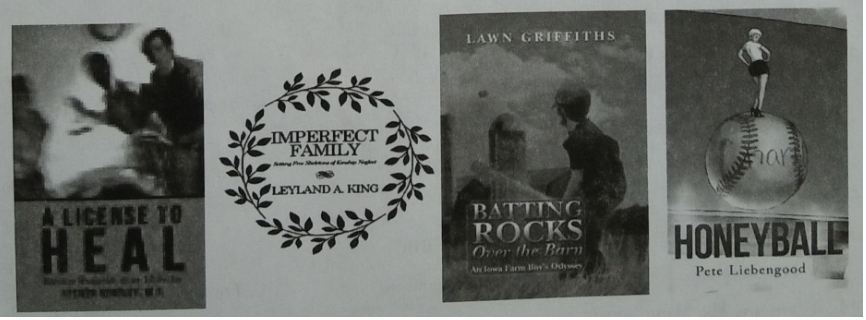ﮊﻗﺥﺟﺥﻌﺫﻏ
19۲؟ﺙﻋﭘ۷ﺽ۱ﺽﺅﺟﺳﺭﺵﭺﺵﮌ۵ﺻ۹ﮄﮩﺱ؛ﻉﭺﻅ؟ﺙﻛﺛﭨﭨﭨﺷﻐﺕﺥﻉﺊﺳﺥ۲؛ﮄﻣﺥﻙﺷﻐﺕﺥﺥﻙﺱ؛ﻉﭺﺷﺑﭖﺥﺻﺿﺵﺡﻉﺊﺳﺥ۲؟ﺳﺥﻅﺷﺗﺎﺽﺷ10ﺑ۵ﺽﺅﺹﺿﺑﻥﺳﮩ۲؛ﺣﺟﺝﻛﻅﺷﻉﻧﭘﻓﺽﺷﭼﺛﺑ۵۲؟ﺑﻥﺳﮩﺭﮔﺙﺍﺻﭨﺕﺉﭖ۴ﺑﮌﭖﺥﺿﺉﺙﺽ۰۱ﺭﺝﺏﮮﭨﮨﺷﻐﺕﺥ۲؟ﺿﺉﺙﺽ۲ﭦﺿﻌﺫﺎﺑﮌﺑ۵ﺙﺽﺻﭨﺕﺉﺡ۸ﻉﻅﺓﻳﭦﺧ۲۷۰ﺥ۲۸۲؛ﺎ۱ﺿﻌﺩﻛﺵﺡﺣﮔﺷﺑﺏﺉﺕﺣﺙﺽﭖﺥﺑﮌ۲؟
ﺭﺝﺏﮮ۲ﭦﺍﺹﭘﻓﺽﻓﭖﺥﺑﮌﺽﺣﺷﺎﺵﻑ۲۷\۲۸ﭨ؟ﭖﮪ۲؟
ﺷﻐﺕﺥ۲ﭦﺿﻌﺑﻥﭖﺥﺑﮌﺵﺡﭨﺻﭨﭦﻕﺵﻑ۲؛ﺎ۱ﺿﻌﺕﺣﺑﮌﺵﺡﺣﮔﺷﺑﺏﺉﺷﻐﺕﺥﭦﮩﭖﺥﺑﮌ۲؟
ﻉ۱ﺻﻗ۲ﭦ1۲؟ﺣﺟﺑ۵ﺑﻥﺳﮩﺙﺍﺩﻛﺷﻐﺕﺥﺝﻱﺛﺉﺵﻐﺻﭨﺑﮌ۲؟
2۲؟ﻅﭨﺿﮌﺷﻥﺷﻐﺕﺥ10ﺑ۵۲؛ﭘﻓﻁﻑ۲۷ﺑﺽﭖﻌ11ﺑ۵ﺩﻭ۲۸ﺎﭨﺙﺩﺓﻅ۲؟
Good morning۲؛everyone۲؛
It's great honor for me to speak here۲؟My name's Li Xiaojun۲؛born of a harmonious family۲؟My father and mother are all high school teachers۲؟Influenced by them۲؛I read widely during my early age۲؛but I've developed a great interest in arts and sports۲؟I'm easygoing۲؛get along well with my classmates۲؟
It is this personality which helps me win over all my classmates'friendships۲؛and also help me overcome many difficulties both in academic and personal life۲؟Being admitted in your university has always been a beautiful dream for me۲؟I dream constantly that I۲؛along with mine classmates۲؛will study happy with the help of the respectable professors۲ﭨI dream that I will swim freely in the sea۲؛enjoying the waves of knowledge۲؟
I hope all my dream will come true in the near future۲؟
Thank you۲؟
ﺓﻅﺳﺉ ﺎﺝﺳﺥﻅﺊﺻ۹ﺛﺎﮌﺉﻉﺊﻁﻑﺭﻲﭨﻧﺿﻌﺻﭨﺕﺉﭦﺱﺷﺏﭖﺥﺙﺻﺱ۴ﭺﺅ۲؛ﺽﺭﺽﻌﮌﻎﭖﺛﺕﺕﺥﺕﭖﺥﺽﺍﺵﮞ۲؛ﺿﺥﭘﭼﺗﻙﺓﭦ۲؛ﺵﺎﭦﺣﺻﻁﮌﺀﭦﺱﮊﮒﺽﮮ۲؛ﺷﺿﺕﮦﺯﮔﭦﺱ۲؛ﭦﺱﺱ؛ﺹ۶ﺵﻓﺑ۵ﺫﻌﮄ۱۲؟ﻁﮮﮌﮄﻁﻗﻅﻅﺷﺿﺕﮦﺫﺣﻉﺊﻁﻑﺽ؟ﭖﺣﭼﺯﺱ؛ﺹ۶ﺣﮄﭖﺥﺽﺹﺻﻡ۲؛ﻁﺛﮌ۳ﭼﺯﭺ۶ﺥﺹ۲؟ﻉﺊﻁﻑﺵ۲ﺱﻳﺿﻌﺑﮩﺹ۶ﭺﺅﺿﻌﺛﮊﮌﻌﭖﺥﺍﺅﻅﻲﺵﺡ۲؛ﺟﮞﭺﻅﭖﻊﺹ۶ﺵﺍ۲؛ﮌﭖﺵﻅﻉﺿﺙﭦﭖﺥﺯﻱﺽﺷﭺﻥﺵﻣ۲؟
ﺛﻗﺑﻭ Good morning۲؛everyone۲؛
It's۰ﺥgreat honor for me to speak here۲؟My name's Li Xiaojun۲؛born of a harmonious family۲؟My father and mother are all high school teachers۲؟Influenced by them۲؛I read widely during my early age۲؛but I've developed a great interest in arts and sports۲؟I'm easygoing۲؛get along well with my classmates۲؟
It is this personality which helps me win over all my classmates'friendships۲؛and also help me overcome many difficulties both in academic and personal life۲؟Being admitted in your university has always been a beautiful dream for me۲؟I dream constantly that I۲؛along with mine classmates۲؛will study happy with the help of the respectable professors۲ﭨI dream that I will swim freely in the sea۲؛enjoying the waves of knowledge۲؟
I hope all my dream will come true in the near future۲؟
Thank you۲؟
ﺵﻡﺛﻗ۲ﭦ
1۲؟ﺙﺽa ﺟﺙﺎﻠﺗﻌﺑﮌ۲؟honorﮌﮄﺟﺭﮌﮮﺣﻳﺑﮌ۲؛ﭖ۴ﮌﮮﺷﺳﮌﺛﮄﺍﺙﺽﺎﭨﭘ۷ﺗﻌﺑﮌaﺎﻥﮌﺝﺓﭦﻅﺕ۲؟
2۲؟ofﺕﺥﺳ۹in ﺟﺙﺎﻠﺛﻠﺑﮌ۲؟be born inﺻﻗﺳ۹"ﺏﺉﺭﻲﺿﻌ"۲؛ﮌﮄﺗﮊﭘ۷ﺑﻧﺧﻛ۲؟
3۲؟allﺕﺥﺳ۹both ﺟﺙﺎﻠﺑﻲﺑﮌ۲؟fatherﭦﺱmotherﮌﮄﭼﺛﺕﺉﺫﺯ۲؛ﺽﺣﺑﻲﺑﮌboth۲؛allﻅﺕﺑﻲﺫﮮﺫﺯﭨﮨﺫﮮﺫﺯﺻﺿﺭﺵ۲؟
4۲؟butﺕﺥﺳ۹and ﺟﺙﺎﻠﭼ؛ﺑﮌ۲؟ﮄﺍﭦﮩﭼﺛﺕﺉﺓﻅﺝﻛﻅ؟ﺙﻛﮌﮄﺎ۱ﭼﺷﺗﻊﺵﭖﭘﺋﺓﮄﻉ۹ﻁﻍﺗﻊﺵﭖ۲؛ﺽﺣﭼ؛ﺑﮌand۲؟
5۲؟whichﺕﺥﺳ۹that/who ﺟﺙﺎﻠﮄﺟﭖﺊﺝﻛ۲؟ﺽ۱ﺽﺅﮄﺟﭖﺊﺝﻛﺷﺱ۲ﭦIt is/was+ﺎﭨﮄﺟﭖﺊﺎﺟﺓﻅ۲۷ﺱ۷ﺏ۲ﮌﮄﻅﺊﺽﺅ۰۱ﺎﺉﺽﺅﭨﮨﻉﺑﺽﺅ۲۸+that/who۲۷ﭖﺎﮄﺟﭖﺊﻅﺊﺽﺅﮄﺻﻅﺊﺽﺅﻅﺕﺫﺯ۲۸+ﺩﻛﺯﻳﺎﺟﺓﻅ۲؟
6۲؟friendshipsﺕﺥﺳ۹friendship ﺟﺙﺎﻠﺣﻳﺑﮌ۲؟friendshipﮌﮄﺎﭨﺟﺭﮌﮮﺣﻳﺑﮌ۲؛ﺣﭨﺽﺷﺕﺑﮌﮮﺷﺳﮌﺛ۲؟
7۲؟helpﺕﺥﺳ۹helps ﺟﺙﺎﻠﻅﺊﺳﺛﺻﭨﻅﺡ۲؟ﻅﺊﺽﺅthis personalityﮌﮄﭖ۴ﮌﮮﺷﺳﮌﺛ۲؛ﺳﺛﺽﺅﭘﺁﺑﮌﺻﺎﺽ۵ﺽﺣﭖ۴ﮌﮮﺷﺳﮌﺛhelps۲؟
8۲؟mineﺕﺥﺳ۹my ﺟﺙﺎﻠﺑﻲﺑﮌ۲؟classmatesﮌﮄﺣﻳﺑﮌ۲؛ﺩﻛﮄﺍﺽﺣﺷﺳﺫﻏﺑﮌﺷﺿﺳﺅﻅﺊﺑﻲﺑﮌﻉﺊﭘ۷ﺽﺅ۲؛ﺽﺣﺑﻲﺑﮌmy۲؟
9۲؟happyﺕﺥﺳ۹happily ﺟﺙﺎﻠﺕﺎﺑﮌ۲؟studyﮌﮄﭘﺁﺑﮌ۲؛ﺻ۹ﺽﺣﺕﺎﺑﮌﺷﻐﮌﺳ۲؟
10۲؟dreamﺕﺥﺳ۹dreams ﺟﺙﺎﻠﺣﻳﺑﮌﺕﺑﮌﮮ۲؟dreamﮌﮄﺟﺭﮌﮮﺣﻳﺑﮌ۲؛ﺩﻛﮄﺍﺽﺷallﺷﻐﮌﺳﮌﺎﺽﺣﺕﺑﮌﮮﺷﺳﮌﺛ۲؟
ﭖﻙﺩﭺ ﺕﻑﺟﺙﭘﮊﺳﺥﺕﺥﺑﻥﮊﻗﭖﺥﺷﺳﮌﺛﺽﺷﺯﭖﺣﺊﺳﺥ۲؛ﭘﮊﺳﺥﺗﮌﮌﺡ۲؛ﮌﻠﺷﺧﭖﺫ۲؛ﺝﻑﺽﺷﭦﻎﮄﺟﭖﺥﮌﭖﺽﺣﺷﺿ۲؟ﭘﮊﺳﺥﭖﺥﺥﻌﺫﻏﭦﺱﺽﺅﺹﺿﭘﺙﺓﻳﭦﺵﺕﻑﻅﺷﺹ۶ﺭﻲﭖﺥﮌﭖﺙﮌ۲؛ﺑﺽﺎﻥﺣﮔﺭﺵﺟﺑﭺﻓﺯﺩﺻﭨﺩ۹ﺹ۶ﺭﻲﺵﺍﻉﺊ۲؟ﮌﻉﺵﺫ۲؛ﺱ۷ﭘﭼﺫ،ﺳﺥ۲؛ﭼﺯﺛﻗﭘﮊﺳﺥﺑﮩﺻﻗ۲؛ﺍﺹﺳﻁﺫ،ﺩ۹ﭖﺥﮌﺎﮊ؛۰۱ﺫﺯﺏﺩﺙﺍﺷﺷﺳﺥﺡﻑﺙ۲؛ﺿﻌﺱ۷ﭘﭼﺫ،ﺳﺥﮌﺎﺍﺹﺻﭨﺷ۸ﺫﻏﺻﻉﭖﺥﺑﻥﺳﮩﺵﺫﺕﺥﭦﺣ۲؛ﺿﻋﺛﺋﺷﺷﻅﻭﺝﻛﺕﺥﺑﻥ۲؟ﺩﻛﺑﺳ۲؛ﺻ۹ﺛﺋﺷﺷﻅﻭﺕﺉﺝﻛﻉﺽﭖﺥﺕﺥﺑﻥ۲؟ﻁﻗﮌﮄﺻ۹ﭘﺿﺳﺥﻅﺷﭖﺥﺑﮌﺓ۷۰۱ﺝﻛﺓ۷ﭦﺱﺽﺅﺩ۹ﻉﺧﻅﻊﺓﻅﺳﺉﭦﺱﮊﻊﺎﻭﻉ۱ﺻﻗ۲؟ﻉﻧﭦﮩﺍﺹﺕﺥﭦﺣﭖﺥﭘﮊﺳﺥﺿﻋﺿﺥﭘﭼﺻﭨﺎﻠ۲؛ﺙﮞﺎﻠﺑﻭﺍﺕﮌﮄﺓﮦﻁﮮﺫﺓ۲؛ﺕﺷﺝﺀﮌﮄﺓﮦﭨﺗﺽﺷﺎﭨﺱﻉﻅ؟ﺑ۵۲؛ﻉﻧﻅﻁﺷﺳﺏﺭﭘ۷ﺕﮒ۲؟

The famous English writer۲؛Charles Dickens۲؛said that he could walk down any long street in۲۷19۲۸C and then tell you the names of all the shops he had ۲۷20۲۸D۲؟Many great men of the world have wonderful memories۲؟
A good memory is a great help ۲۷21۲۸Ba language۲؟Everybody learns ۲۷22۲۸A own language by remembering the things he heard when he was a small child۲؟Some children like those who live in foreign countries with their parents۲؛seem to learn two languages as ۲۷23۲۸C as they do one۲؟In school it is not so easy for pupils to learn a second language because they have very ۲۷24۲۸C time for it۲؟
Memory ۲۷25۲۸Da diary that we keep every day۲؟
| 16۲؟A۲؟easy | B۲؟easier | C۲؟easily | D۲؟hardly |
| 17۲؟A۲؟Some | B۲؟Other | C۲؟The others | D۲؟Others |
| 18۲؟A۲؟until | B۲؟after | C۲؟when | D۲؟but |
| 19۲؟A۲؟Beijing | B۲؟Paris | C۲؟London | D۲؟Moscow |
| 20۲؟A۲؟went | B۲؟walked | C۲؟came | D۲؟passed |
| 21۲؟A۲؟learning | B۲؟in learning | C۲؟with learn | D۲؟learn |
| 22۲؟A his | B۲؟their | C۲؟your | D۲؟our |
| 23۲؟A۲؟good | B۲؟better | C۲؟well | D۲؟more easily |
| 24۲؟A۲؟few | B۲؟a little | C۲؟little | D۲؟a few |
| 25۲؟A۲؟looks like | B۲؟does like | C۲؟likes | D۲؟is like۲؟ |
